Russia's Syria pullback: A catalyst for peace?
- Published
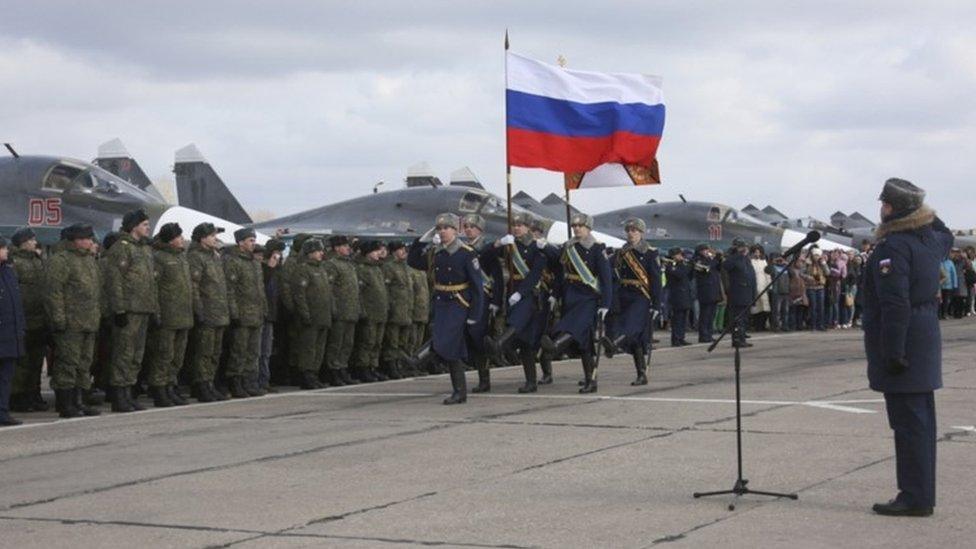
Russia has organised welcoming ceremonies for its troops arriving home from Syria
Vladimir Putin's decision to pull much of his forces and air power out of Syria took the world by surprise. But it really should not have.
He has done exactly what he said he would do when he staged his surprise intervention nearly six months ago.
At that time, he said he had two goals: To stabilise the situation of the Syrian government, and to prepare the way for a "compromise political settlement" of a crisis that is now five years old.
It may be unusual for world leaders to mean what they say, or to say what they really mean, especially when it comes to wars, where thin ends often become fat wedges.
But Mr Putin's intervention in Syria made perfect sense from Russia's point of view, and so now does his decision to de-escalate.
It was never really about the militants of self-styled Islamic State (IS), though that was a large part of the cover story and took on greater significance after the bomb explosion on a Russian airliner over Sinai at the end of October.
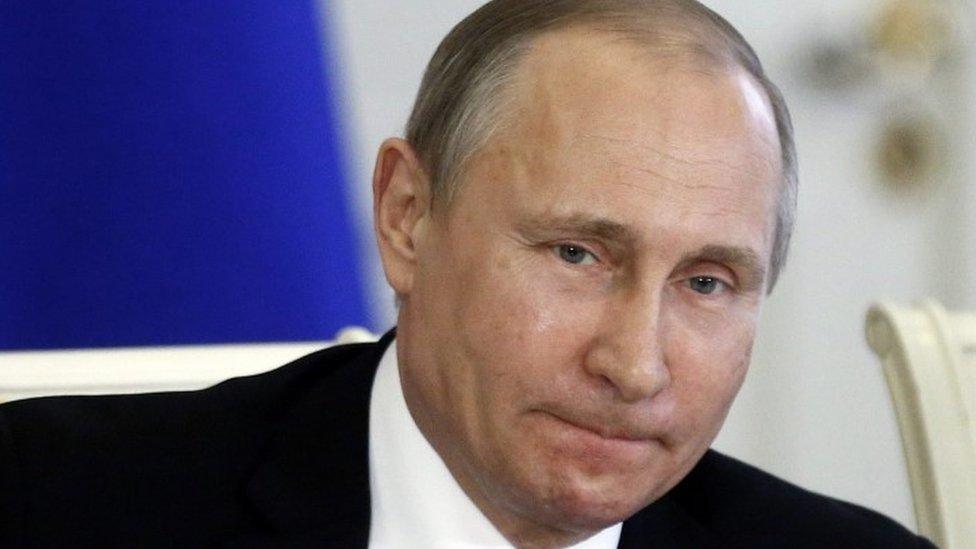
President Putin's forces have shored up government areas against rebel attacks, signalling they will not allow the Syrian government to be overthrown or Damascus to be overrun
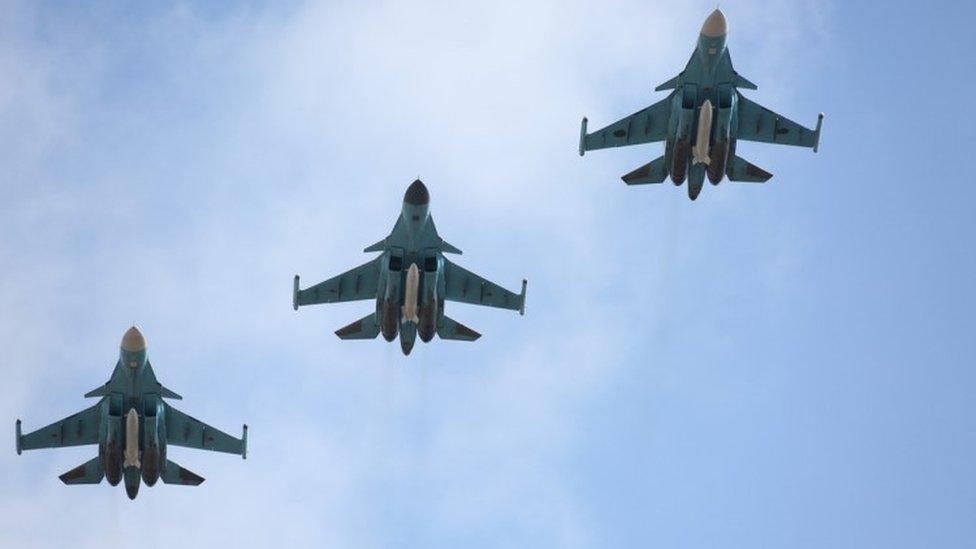
Russian air power has played a key role in checking rebel advances in Syria
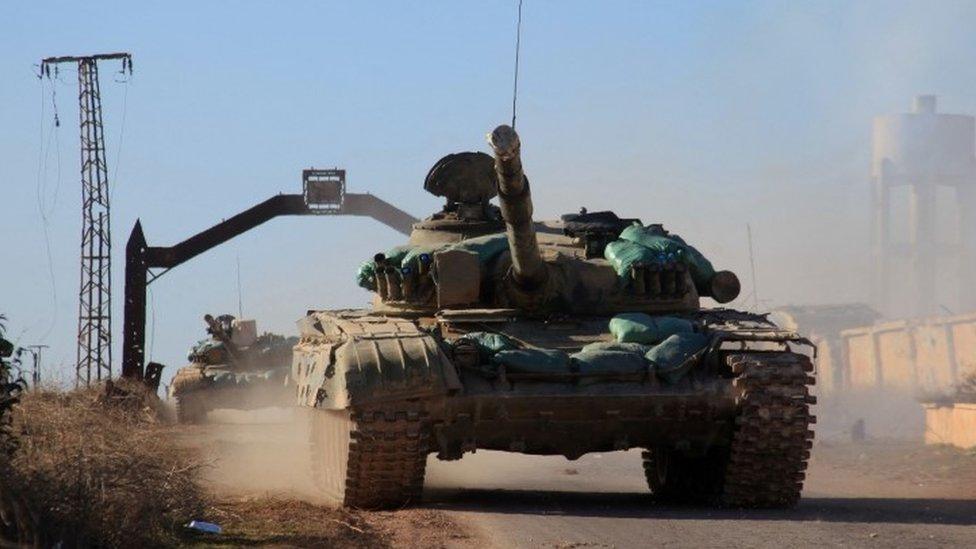
There is now a more level playing field between the forces of President Assad and the rebels
The Russian intervention was prompted above all by the fact that the Saudis, Turks, Qataris and probably Americans had stepped up and co-ordinated their support for rebel groups, which were also increasingly pulling together and starting to pose a real threat to the government of President Bashar al-Assad.
The Russians, and President Assad's Iranian allies too, risked losing their strategic investment in Damascus. So both stepped up their involvement.
The result is now a level playing field. With Russian and Iranian help, the Syrian forces have straightened out their defensive lines, regained some strategic territory, and put the rebels on the back foot.
But overall victory could only have been achieved at a massive cost which neither Russia nor Iran could afford, with every chance that it would lead to an open-ended sectarian war with a strong regional dimension.
The Russians could very easily have found themselves bogged down in something reminiscent of their ill-fated Afghan expedition, facing the same array of jihadists backed by the Saudis and their allies - in all probability some of the actual veterans from the Afghan academy of jihadism.
President Assad, flushed with borrowed success, may have wanted to go all the way, apparently imagining his minority Alawite-dominated government could simply re-impose its control over the Sunni majority as though the past five years and more than a quarter of a million deaths had not happened.
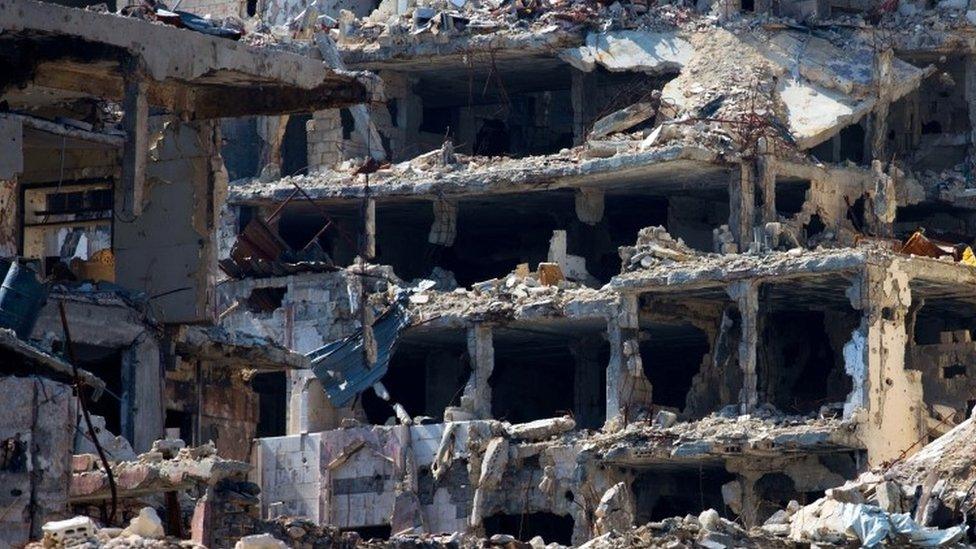
Both the Russians and the Iranians are eager not to get bogged down in Syria
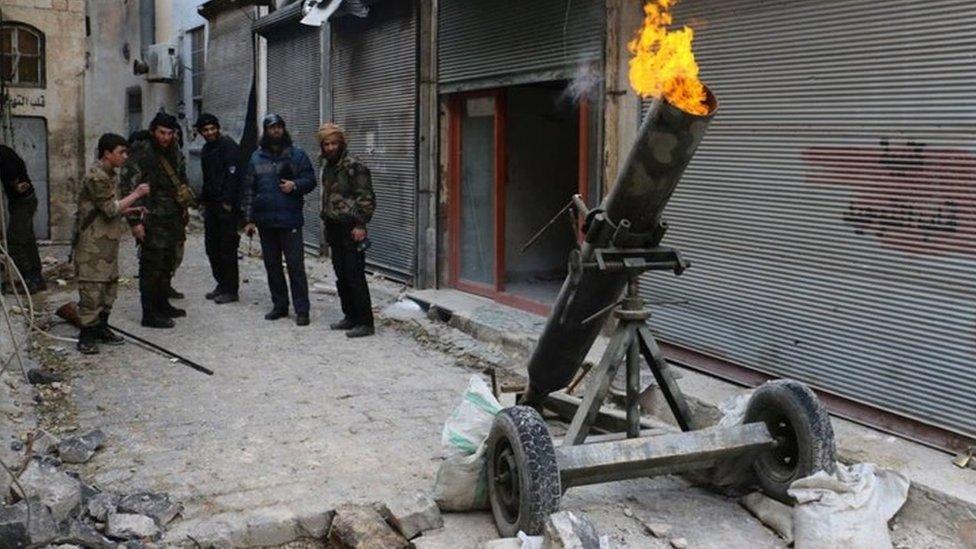
The ambitions of Saudi Arabia and other backers of the rebels have been quashed by the Russian intervention
But the Russians clearly judged that to be a disaster course. They saw their job as being to shore up the government areas, signal unmistakably that they would not allow the government to be overthrown or Damascus overrun, and hand over to a rebalanced political process.
For Bashar al-Assad, the message is clear: He will have to curb his enthusiasm.
Can he expect greater indulgence from the Iranians? The signs so far are negative.
Seen from Tehran, the prospect of trying to use Iraqi, Lebanese and other Shia proxy militias, and increasingly their own assets, to control the entire Sunni heartland straddling Iraq and Syria - including IS and rebel-held areas - opens up a daunting prospect of unending turmoil, just as it would for the Russians.
So it is back to Geneva. The prospects there may not look bright, but they are certainly better than they ever have been before, because pretty much all the outside players are finally on the same song sheet, above all the Russians and Americans.
The ambitions of Saudi Arabia and other backers of the rebels must have been quashed by the Russian intervention, and held back by the knowledge that a further lurch of the balance in the rebels' favour would trigger another limited counter-move by President Putin.
That in no way guarantees that an end to the war is at hand. There could be a long period of strategically limited combat, or an indefinite extension of the current relative truce, without it translating into a stable settlement.

But there is strong momentum, especially from the Americans and their allies, to push a settlement that would allow all parties to turn against IS.
For that to happen, the Russians would have to deliver the Syrian government side and also Iran, while the US would have to rein in its currently somewhat headstrong regional allies, notably the Saudis.
President Putin has done something the Americans could not have: Recalibrated the situation on the ground, and set himself up as a key player in the settlement game.
But what kind of settlement could work?
The idea of straightforward democracy in a united Syria would not, from Russia and Iran's viewpoints.
They would lose their strategic investment, because that would empower the majority Sunnis, just as it did with the majority Shia in Iraq.
At present the only formula that looks viable for holding both countries together and satisfying the outside powers is a loose confederation, with a great deal of power devolved to regions, on a largely sectarian basis.

More on the Syria conflict

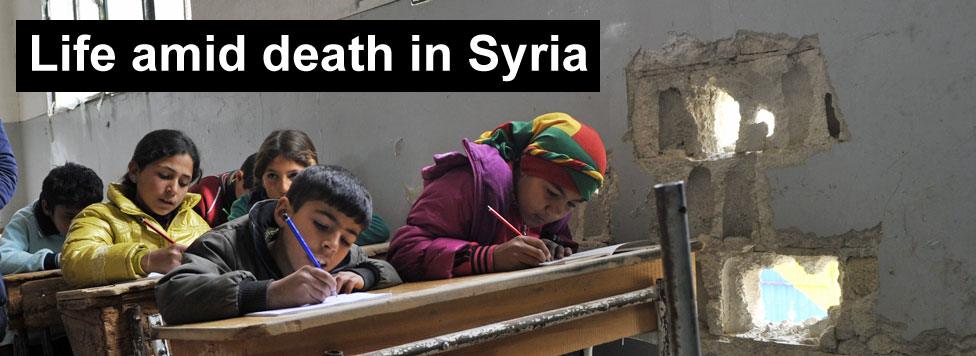
The war in Syria has raged for five years and claimed the lives of more than a quarter of a million people. Millions have fled the conflict, but nearly 18 million people still live in the war-torn country - so what is life like for them?
